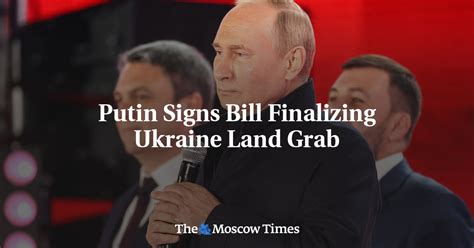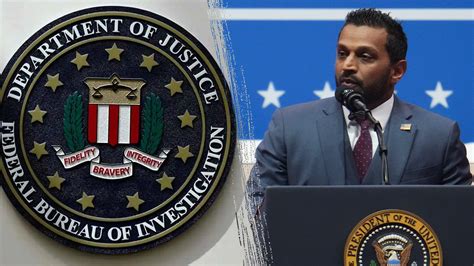
Former Russian President Dmitry Medvedev calculated that seizing all of Ukraine’s territory would take Russia 91 years, reiterating aggressive rhetoric against the neighboring nation. His remarks, published on his Telegram channel, underscored the Kremlin’s continued ambition despite facing significant military setbacks in the ongoing conflict.
Dmitry Medvedev, currently the deputy chairman of Russia’s Security Council, stated that achieving full control over Ukraine would require a protracted campaign spanning nearly a century, should Russia aim to capture approximately “five regions a year.” His comments arrive amid fluctuating battlefield dynamics and persistent international condemnation of Russia’s invasion.
Medvedev’s statement served as a public display of Russia’s long-term objectives in Ukraine, even as its military struggles to maintain its current territorial gains. His words echo previous maximalist goals expressed by Kremlin officials, although the feasibility and realistic prospects of such an extended campaign remain questionable.
The former Russian president’s remarks highlighted the stark contrast between Russia’s stated goals and its on-the-ground performance, as Ukrainian forces continue to mount stiff resistance, supported by Western military aid. The conflict, which began in February 2022, has already resulted in significant casualties, displacement, and geopolitical tensions.
Medvedev’s statement, while potentially serving a propaganda purpose, also reflects a persistent underestimation of Ukrainian resolve and overestimation of Russia’s military capabilities. The international community largely views Russia’s actions as a violation of international law and a threat to European security.
Expanded Coverage and Analysis
Dmitry Medvedev’s recent pronouncements regarding the hypothetical timeline for Russia to seize all of Ukraine represent more than just an offhand comment; they embody a calculated projection of Russian ambition and strategic thinking, albeit one divorced from current battlefield realities. Understanding the context, implications, and potential motivations behind such statements requires a deeper analysis.
Medvedev’s Role and Influence: As the former President and Prime Minister of Russia, Dmitry Medvedev remains a significant figure within the Russian political establishment. Currently serving as the deputy chairman of Russia’s Security Council, he holds a prominent position in shaping national security policy. While some analysts consider his role to be largely symbolic, his statements carry weight, reflecting at least a segment of the thinking within the Kremlin. His increasing belligerence and hawkish rhetoric, particularly since the onset of the conflict in Ukraine, are interpreted as a means to demonstrate loyalty to President Vladimir Putin and maintain his standing within the inner circle.
Propaganda and Psychological Warfare: Medvedev’s statement can be viewed as a component of Russia’s broader information warfare strategy. By projecting a long-term commitment to capturing all of Ukraine, the Kremlin aims to demoralize the Ukrainian population and its armed forces, and potentially erode Western support by suggesting the conflict will be protracted and costly. This tactic aims to undermine Ukrainian morale by fostering a sense of inevitability about Russia’s eventual victory. Additionally, it attempts to portray the West’s investment in Ukraine as futile, as Ukraine is projected to fall eventually.
Domestic Political Considerations: Hardline rhetoric can also serve domestic political purposes. With the conflict ongoing and Russian society facing economic challenges due to sanctions, aggressive statements can rally nationalist sentiment and deflect attention from internal problems. By framing the conflict as an existential struggle for Russia’s survival and influence, the Kremlin seeks to bolster public support for the war effort and consolidate political power. It reinforces the narrative that Russia is defending itself against Western encroachment and protecting its historical territories.
Disconnect from Reality: Medvedev’s 91-year estimate stands in stark contrast to the actual trajectory of the conflict. Despite initial expectations of a swift victory, Russian forces have encountered fierce resistance from Ukrainian troops, resulting in significant territorial losses and military setbacks. The statement also neglects the substantial international support that Ukraine receives in the form of military aid, financial assistance, and diplomatic backing. The Ukrainian military has proven to be a highly motivated and adaptable force, capable of inflicting heavy casualties on Russian troops and reclaiming occupied territory. The continued flow of Western weapons and training further strengthens Ukraine’s defensive capabilities.
Potential Outcomes and Implications: While Medvedev’s timeline may be unrealistic, his statement underscores the Kremlin’s maximalist goals. If Russia were to genuinely pursue such a long-term strategy, it would entail a sustained commitment of resources, manpower, and political will. Such a commitment would have far-reaching implications for Russia’s economy, society, and international relations. A protracted conflict would drain Russia’s financial reserves, strain its military capabilities, and further isolate it from the international community. The human cost, in terms of casualties and displacement, would be immense. Furthermore, it would likely trigger a sustained insurgency within occupied territories, making it difficult for Russia to establish lasting control.
International Reactions: Medvedev’s remarks have been met with condemnation and skepticism from Western governments and international organizations. Many view his statement as a dangerous escalation of rhetoric and a confirmation of Russia’s disregard for international law and Ukrainian sovereignty. Such statements reinforce the determination of Western countries to continue supporting Ukraine’s defense and to impose sanctions on Russia until it ceases its aggression. International pressure on Russia is likely to intensify, with further economic sanctions and diplomatic isolation.
Alternative Interpretations: Some analysts suggest that Medvedev’s statement may be intended to serve as a bargaining chip in future negotiations. By publicly articulating maximalist goals, Russia may be positioning itself to later scale back its demands in exchange for concessions from Ukraine and the West. This interpretation suggests that Russia might be willing to settle for a smaller territorial gain or other strategic advantages in exchange for an end to the conflict. Another possible interpretation is that Medvedev’s remarks are aimed at testing the resolve of the West and assessing the level of support that Ukraine can expect in the long term. By floating the idea of a protracted conflict, Russia may be trying to gauge the willingness of Western countries to sustain their assistance to Ukraine over an extended period.
The broader geopolitical context involves a complex interplay of factors. Russia’s actions in Ukraine are driven by a combination of strategic, historical, and ideological considerations. The Kremlin views Ukraine as a crucial buffer state, preventing NATO expansion and safeguarding Russia’s security interests. President Putin and other Russian leaders have long expressed resentment over Ukraine’s westward trajectory and its efforts to align itself with the European Union and NATO. The conflict in Ukraine can also be seen as part of a broader struggle for influence between Russia and the West. Russia seeks to challenge the US-led global order and assert its role as a major power in a multipolar world. The conflict has profound implications for the future of European security and the international balance of power.
Historical Parallels
Medvedev’s hypothetical 91-year timeline invites historical comparisons, albeit with caveats. History offers several examples of protracted conflicts and occupations, but few directly mirror the current situation in Ukraine.
The Soviet-Afghan War (1979-1989): This conflict, lasting a decade, saw the Soviet Union intervene in Afghanistan to support a communist regime against mujahideen rebels. The war became a quagmire for the Soviets, draining resources and contributing to the eventual collapse of the Soviet Union. It demonstrates the difficulties of suppressing a determined insurgency in a foreign land, even with superior military power.
The Vietnam War (1955-1975): The United States’ involvement in Vietnam spanned two decades, marked by escalating military intervention and fierce resistance from Vietnamese communist forces. The war ended in defeat for the US, highlighting the limitations of military force in achieving political objectives and the importance of local support.
The Israeli-Palestinian Conflict: This ongoing conflict, dating back to the mid-20th century, illustrates the complexities of territorial disputes and the challenges of achieving a lasting peace agreement. Despite numerous attempts at negotiation and mediation, the conflict remains unresolved, fueled by deep-seated historical grievances and competing claims to land.
These historical parallels underscore the difficulties and potential pitfalls of protracted conflicts and occupations. They highlight the importance of local resistance, international support, and political factors in determining the outcome of such conflicts.
Impact on the Region and Global Order
The ongoing conflict in Ukraine has far-reaching consequences for the region and the global order. It has triggered a humanitarian crisis, with millions of Ukrainians displaced from their homes and seeking refuge in neighboring countries. The conflict has also disrupted global supply chains, leading to rising food and energy prices.
The conflict has further strained relations between Russia and the West, leading to a new era of geopolitical competition. NATO has strengthened its presence in Eastern Europe, and several countries have increased their defense spending. The conflict has also prompted a reassessment of European energy security, with countries seeking to reduce their reliance on Russian gas.
The conflict in Ukraine has also raised concerns about the future of international law and the rules-based international order. Russia’s violation of Ukrainian sovereignty and its disregard for international norms have undermined the principles of territorial integrity and non-interference in internal affairs.
Conclusion
Dmitry Medvedev’s statement about a 91-year timeline for seizing all of Ukraine is a provocative and likely unrealistic projection of Russian ambitions. It serves as a tool of propaganda, aimed at demoralizing Ukrainians and eroding Western support. The statement also reflects the Kremlin’s maximalist goals and its determination to exert control over Ukraine, regardless of the cost. The international community must remain vigilant in its support for Ukraine and continue to pressure Russia to end its aggression. A lasting resolution to the conflict will require a commitment to diplomacy, respect for international law, and recognition of Ukraine’s sovereignty and territorial integrity. The remarks are yet another example of Russia’s continued aggression toward Ukraine and the need for the international community to reinforce Ukraine’s sovereignty.
Frequently Asked Questions (FAQ)
1. What was the main point of Dmitry Medvedev’s statement regarding Ukraine?
Dmitry Medvedev stated that it would take Russia 91 years to seize all of Ukraine if they aimed to capture approximately five regions a year. This was interpreted as a projection of Russia’s long-term goals, however unrealistic.
2. Who is Dmitry Medvedev and what is his current role in the Russian government?
Dmitry Medvedev is the former President and Prime Minister of Russia. He currently serves as the deputy chairman of Russia’s Security Council.
3. How has the international community reacted to Medvedev’s statement?
The international community has largely condemned Medvedev’s statement, viewing it as a dangerous escalation of rhetoric and a confirmation of Russia’s disregard for international law and Ukrainian sovereignty.
4. What are some potential motivations behind Medvedev’s statement, besides projecting long-term goals?
Other motivations include propaganda to demoralize Ukrainians and erode Western support, rallying nationalist sentiment within Russia, and potentially serving as a bargaining chip for future negotiations.
5. How does Medvedev’s 91-year estimate compare to the actual progress of the conflict in Ukraine?
Medvedev’s estimate stands in stark contrast to the actual trajectory of the conflict, where Russian forces have encountered fierce resistance and have suffered significant territorial losses. His claim does not account for military setbacks and international aid to Ukraine.









